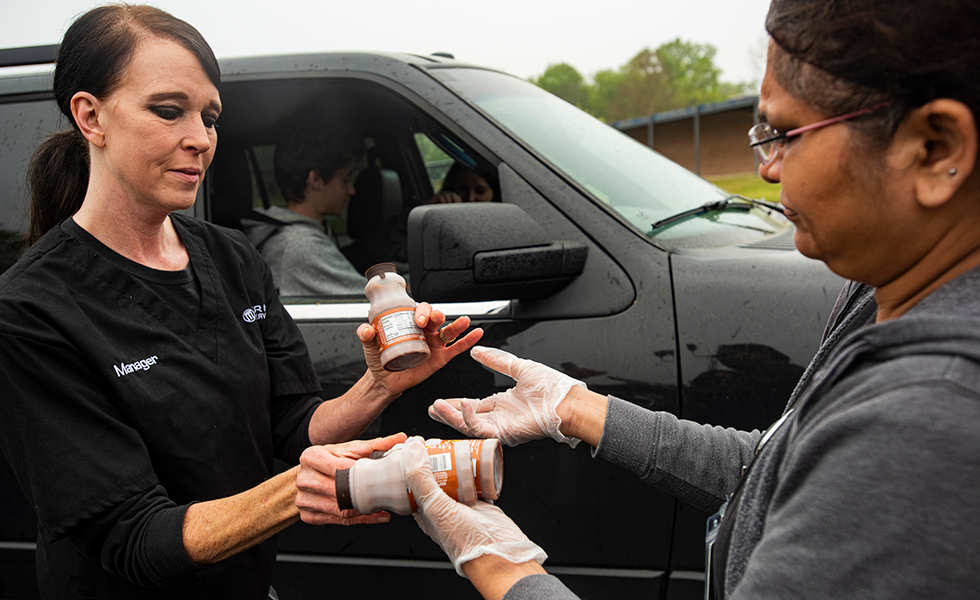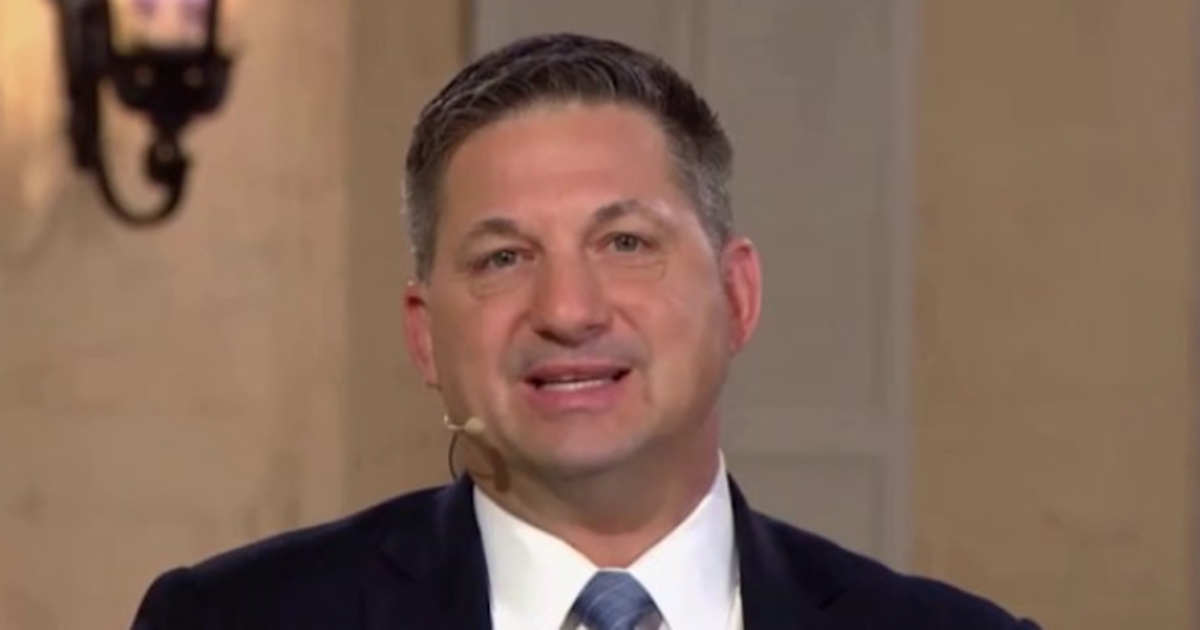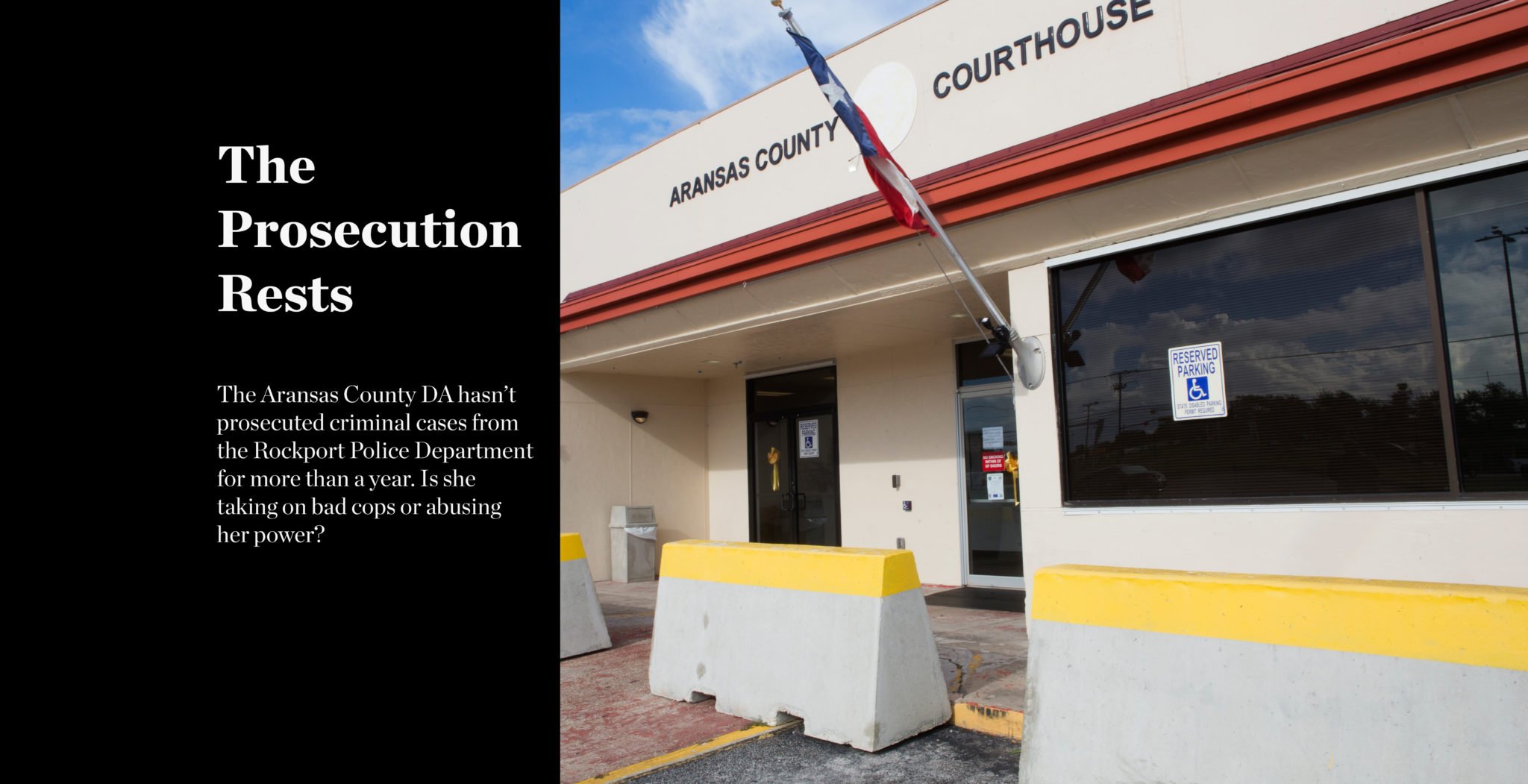
by Ciara O’Rourke
September 14, 2018
On the evening of August 15, 2017, as Hurricane Harvey was just starting to take shape in the Atlantic, the Rockport Pilot posted a press release from Kristen Barnebey, the chief prosecutor in Aransas County. In late July, the release revealed, she had stopped accepting cases from Chad Brooks, an officer with the Rockport Police Department.
The reasons were tantalizing, but vague. Brooks had “shown a pattern of untrustworthy behavior” and “continued to engage in the unethical behavior of profiling defendants,” the press release said. Further, Brooks had “engaged in activity” that she couldn’t explain further due to ongoing investigations. Though she had “issues” with other officers, she didn’t describe those either. The final allegation took aim at the city’s leaders. Rockport Police Chief Tim Jayroe had deliberately withheld evidence, the press release said. And when Barnebey appealed to C.J. Wax, then Rockport mayor, and Kevin Carruth, the city manager, “nothing was done.”
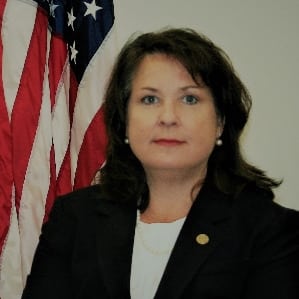
Barnebey dismissed 17 cases that Brooks had pending and notified the court that prosecutors would no longer sponsor his testimony. Then she drew a line. “When law enforcement will not uphold the law,” she said, “prosecutors must step forward and ensure the law is being followed and unethical officers are not being put before the judge and jury as credible witnesses.” Until Rockport police cleaned up their department, Barnebey said, she wouldn’t take cases from any of their officers.
Ten days later, Harvey made landfall in Texas, destroying homes and businesses and so badly battering the Aransas County Courthouse that Barnebey and her deputies decamped to a temporary office in a strip mall. In the small lobby, legal books line the shelves, giving the space a sense of permanence as prosecutors pursue criminal complaints from behind a window that separates them from the visiting public. Even though Brooks was fired in July, Barnebey hasn’t prosecuted a case from the Rockport PD for more than a year.
Over the last few weeks, she and city officials have been meeting regularly in the hopes of ironing out their differences. As this story went to press, both sides were hopeful they’d finally reached an agreement. But after months of accusations and acrimony on both sides, many questions remain unanswered. Is Barnebey a green criminal prosecutor bungling the law, as some detractors have suggested? Or a woman taking on good ol’ boys who haven’t enforced laws meant to hold authorities accountable?
–
Barnebey’s claims center on laws requiring prosecutors to give criminal defendants favorable evidence that could help their case. Under the so-called Brady Rule, a federal law that stems from the 1963 Brady v. Maryland case, any exculpatory evidence that’s withheld is considered suppressed. More recently, the Michael Morton Act — named for the Williamson County man who spent more than two decades in prison before evidence withheld by prosecutors exonerated him — strengthened the Brady disclosure requirements. The 2013 Texas law also directs prosecutors to hand over evidence, including offense reports, witness statements and other documents relevant to the case.
For prosecutors, the stakes are high, at least in theory. If they’re caught skirting the law, they could lose their license, be disbarred or even face criminal charges. Because prosecutors are also required to tell defendants about any evidence that could impeach one of their witnesses, many DAs now keep formal or informal lists of officers whose alleged misconduct would have to be divulged to defense lawyers. In Texas, hundreds of law enforcement officials have landed on so-called “Brady lists.” Some cops have been blacklisted by prosecutors altogether. But Barnebey appears to be the first to snub an entire agency.
“I need details. We haven’t been given anything specific.”
In March, the city of Rockport returned fire, running a newspaper ad that blamed Barnebey for the standoff. Dozens of cases were languishing, the city claimed, and Barnebey was creating an environment that could put residents at risk. By late April, two aggravated assaults, one sexual assault and five domestic violence or protective order violations were among 67 cases the city said Barnebey had declined to accept.
When I visited Rockport in May, officials expressed bewilderment at Barnebey’s decision to shut out the local police. Carruth, the city manager, said she hadn’t explained what exactly the problem was.
“I need details,” he said. “We haven’t been given anything specific.”
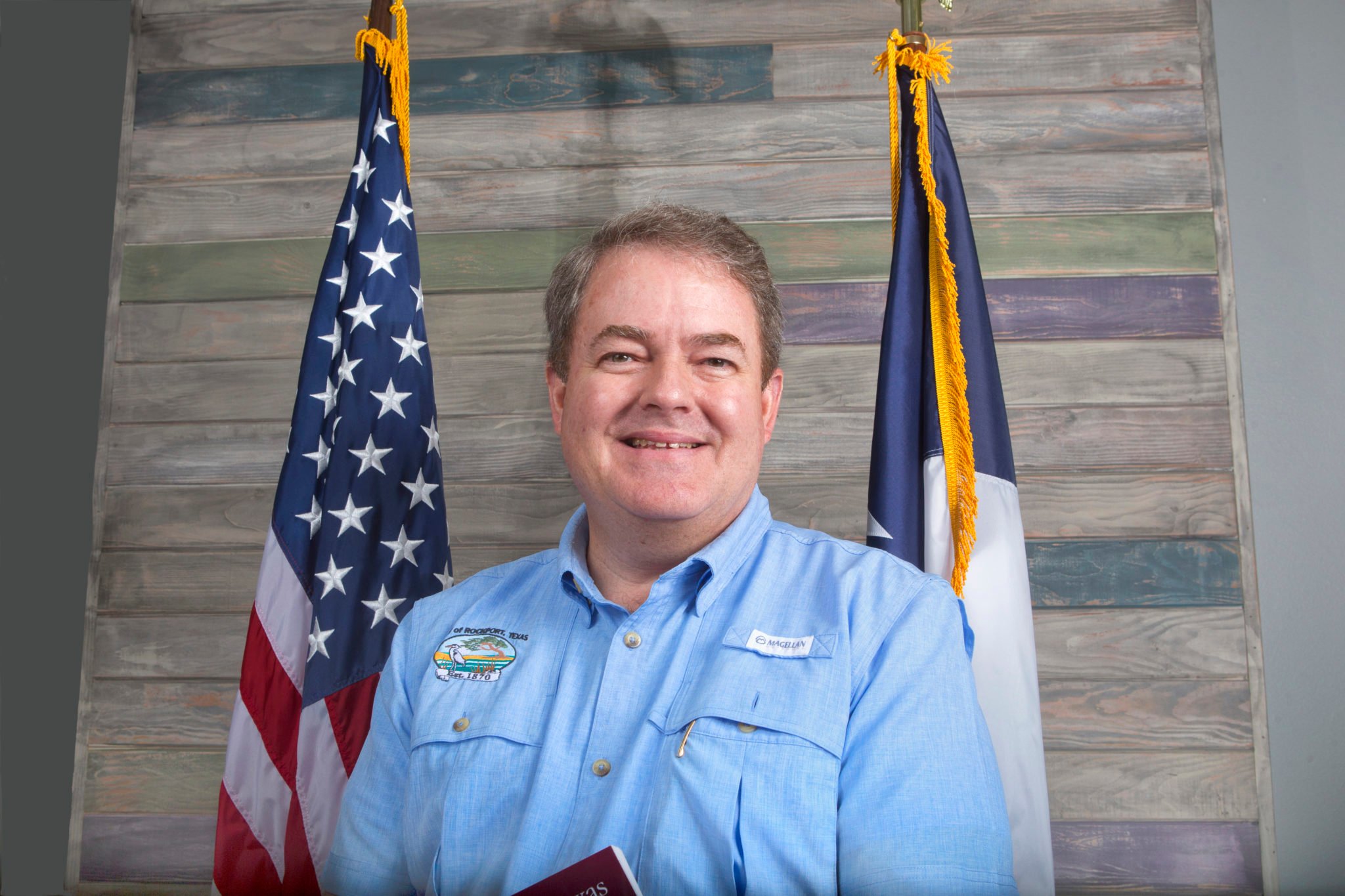
But Brooks thinks Barnebey stopped accepting his cases because she was mad that he recorded a meeting at her office. In July 2017, Kelsey Downing, one of Barnebey’s assistant attorneys, had summoned Brooks for a pretrial meeting there. Brooks, who had previously butted heads with the prosecutors, was worried they were setting him up. He had already participated in pretrial meetings with other prosecutors, and it was a weekend, which struck him as odd. So he turned on his body camera and secretly recorded the meeting.
The shaky footage, which was later posted to YouTube by a Rockport reporter, shows Downing peppering Brooks with questions about a case report. She tells him he’s including too much gratuitous detail in his reports, and she warns him about talking about a defendant’s personal history in court. “I have to trust that you’re going to take direction from myself when you’re on the stand,” she says.
Tim Jayroe, the police chief, told the Observer in May that he disapproved of Brooks’ furtive behavior. He said he gave a copy of the recording to Barnebey and wrote a memo warning Brooks not to do something like that again. But Jayroe said that while the officer’s behavior was unethical, it wasn’t illegal and didn’t violate the city’s rules. Still, Brooks was fired about six weeks after that conversation — and about a year after Barnebey stopped taking his cases. According to Carruth, Brooks was dismissed for allegedly falsifying a timesheet, and it had nothing to do with the video. Carruth wouldn’t elaborate, but Brooks denied the allegation and has appealed his termination. “I was on duty, in uniform and working,” he said. When I met the officer in Rockport, before he was fired, he was indignant about what he suggested was a crusade against him. Barnebey, he said, was smearing him without evidence. She was angry that he had recorded the meeting, and wanted him gone. “If I did something wrong, then indict me,” he said. “Come on, use my handcuffs.”
Pam Heard, the county’s district clerk, told me Brooks was “an excellent officer, probably one of the best” in Rockport. He was a veteran of the Iraq War, and his wife had recently given birth to their first child. He seemed to have the support of the police chief, and the mayor and city manager.
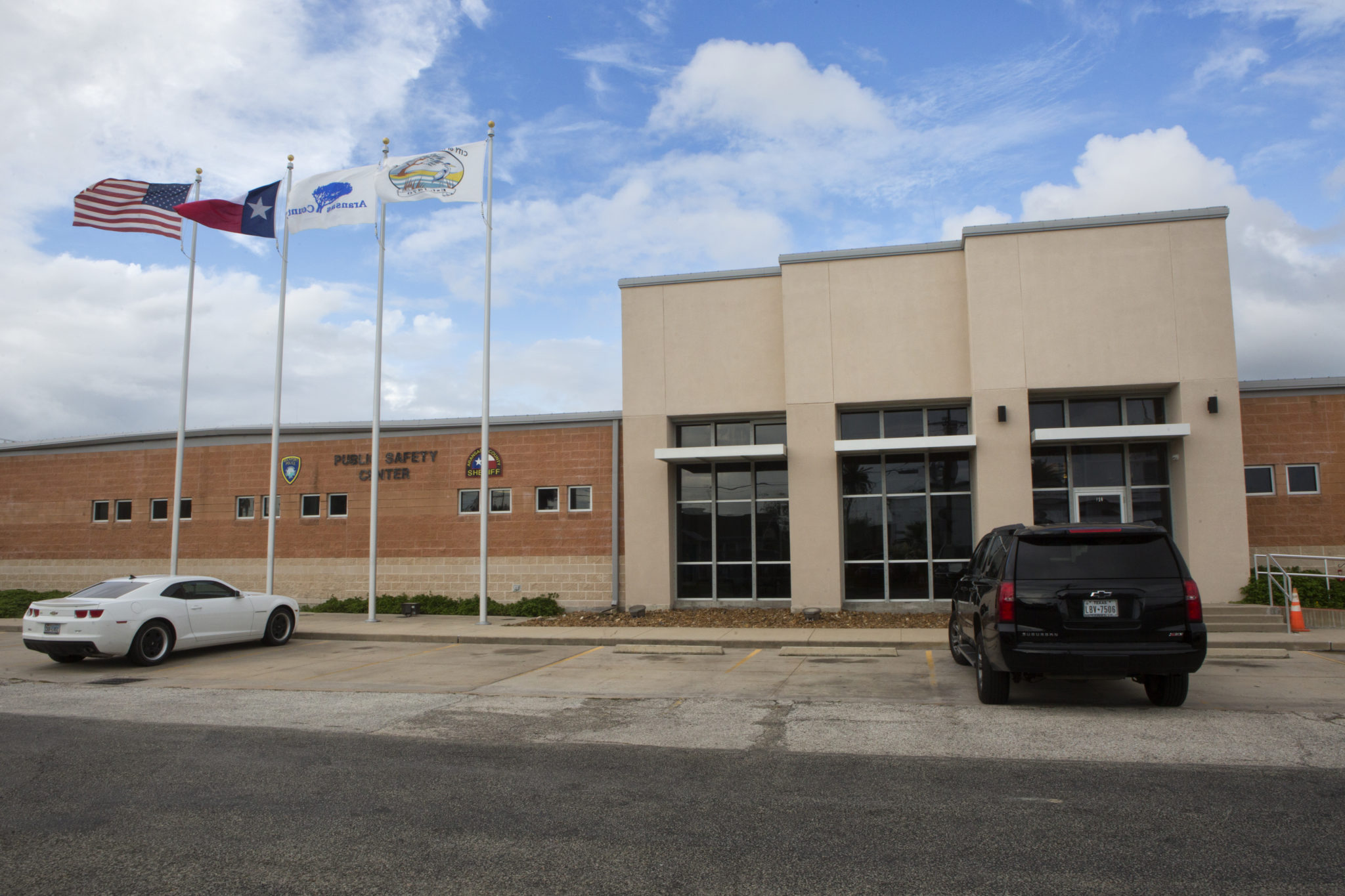
Barnebey maintains she wasn’t angling for Brooks to be fired. “I’m not doing this because I want someone to lose their job,” she said. “At the beginning of this, I said this officer has served in the military, three tours, and has a new baby. We need to sit down and do what every other law enforcement agency does, which is put him on leave — put him on desk duty — and sit him down and figure out how to resolve this.”
“But what do you do when you can’t trust [the police department]?” she asked. “That’s not good enough for me to put someone in prison, and it shouldn’t be for anyone.”
When Brooks made his video, he created evidence about an active case that should have been turned over to the DA’s office, Barnebey contends. To add insult, Barnebey said she only found out about the footage after an “internal source” at the police department told her officers were watching it and “throwing popcorn” at the screen.
At first, she said, Jayroe wouldn’t give her a copy.
“I said, ‘I’m not leaving until you give it to me,’ and he said, ‘You will get out of my office,’ and said ‘I’ll bring it when I’m ready,” Barnebey recalled. By initially refusing to turn over the recording, Barnebey said, Jayroe revealed that he didn’t understand his duty to disclose evidence under the Michael Morton Act.
Jayroe and two commanders who were at the meeting deny this happened.
“That is absolutely a bold-faced lie,” said Jerry Lawing, commander of the department’s criminal investigation division. He told Barnebey and Downing that it would take 10 to 15 minutes to make a copy, but they didn’t want to wait. He brought the video to them later that day.
According to Barnebey, the department’s officers have refused to follow discovery laws. “They only give you what they think you need,” and resort to harassment and intimidation when that doesn’t work.
“The problem is the Rockport Police Department lies,” she said. “It’s how they get out of things.”
She alleges her problems with the department are bigger than Brooks. Officers routinely gave bad testimony on the stand, advocating for defendants to be locked up instead of simply relating the facts of a case. One officer couldn’t identify a suspect by name in court, she said; another allegedly mishandled evidence.
In recent weeks, though, Barnebey, the county judge and Pat Rios, the new Rockport mayor, have been meeting to try to reach a resolution. Barnebey wants all law enforcement in the county to use a disclosure policy that dictates when agencies must notify prosecutors about an officer’s alleged misconduct. Rios, Barnebey said, ordered Rockport police to start following the policy, and to act on recommendations from the DA’s office, including an audit. Barnebey said she asked for these changes about a year ago and put them in writing in February. (Jayroe denies that Rios has given him any orders, though he acknowledges that the mayor asked him to meet with the DA.)
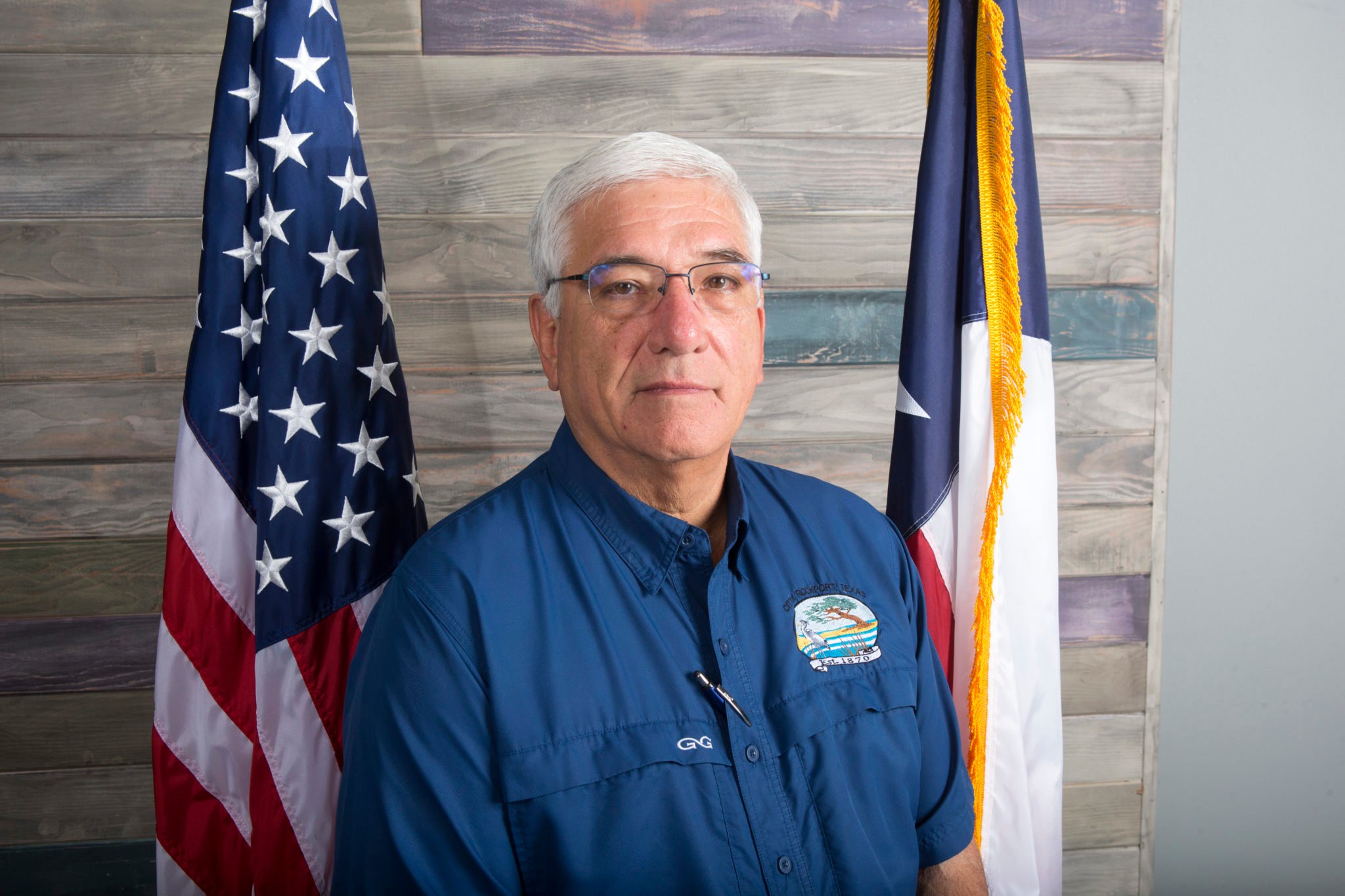
Barnebey says she’s “hoping” to start taking Rockport cases within days. “I have been assured that all RPD issues will be dealt with by the mayor and the chief,” she wrote in an email.
Others argue that Barnebey is the one who doesn’t understand the law. “She came into the position with absolutely no criminal experience,” said Heard, the district clerk. Barnebey worked in civil law before she was appointed county attorney in 2014 and started prosecuting misdemeanors. But the Legislature granted her felony prosecuting power in 2015, and without a dedicated Aransas County DA, Barnebey assumed a hybrid title of “county district attorney.”
Heard suggested that the chief prosecutor’s learning curve has been steep, saying Barnebey makes clerical errors and requests more records than previous prosecutors. “It’s a mess,” Heard sighed. And, she said, she has never felt so sorry for anyone as she has for Chad Brooks.
–
At the 2010 Census, Rockport had a modest population of about 10,500, though officials say the population shrank in the wake of Hurricane Harvey. Aransas County isn’t much bigger, with only about 25,500 residents pre-storm. A squabble in this coastal community is the stuff of small-town politics — personal with plenty of sniping. But the stalemate has drawn statewide attention.
Potter County Attorney Scott Brumley, who has weighed in on disclosure laws for the Texas District and County Attorneys Association, hopes Barnebey and Rockport can reach an agreement soon. Otherwise, he worries the Texas Legislature may cook up a bill that would affect the “253 other counties in Texas that have not really reached that crisis point.”
“The problem is the Rockport Police Department lies. It’s how they get out of things.”
He described the progress of prosecutors and police in coming into compliance with Brady and Morton as “stutter-step.” He was reluctant to comment on Barnebey’s decision to refuse Rockport’s cases, but he said she’s a good, serious lawyer who’s “fairly intense about her work.”
“My experience with Kristen would not suggest she is an overbearing, abusive sort of Svengali as a prosecutor,” he said.
A recent court case stemming from an alleged assault in 2016 seems to lend credence to Barnebey’s version of events. During a hearing in August, the defense attorney in the case, former state Representative Gabi Canales, complained to Judge Janna Whatley that she had been unable to get evidence from Barnebey’s office or the police department. Prosecutors had told her that they couldn’t get documents from the police, either, and when Canales filed an open records request with Rockport PD, they only handed over some of the items, she said. Canales told the judge that she believed the Morton and Brady laws were being violated because of the missing records.
“Where are they?” Whatley asked. “What is going on?”
Barnebey blamed the police. She told Whatley she’d even subpoenaed the records, but still hadn’t gotten anything. Jayroe’s explanation — that someone had been out of town — didn’t satisfy the judge. “Those things should have been turned over two years ago,” she told Jayroe.
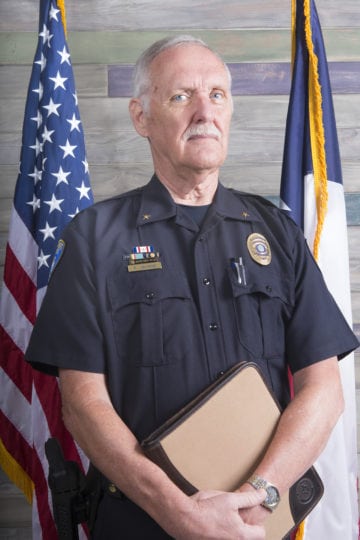
“I don’t believe any law enforcement understands” that the Morton Act requires prosecutors to give defense attorneys anything related to their clients’ alleged crime, Whatley said. “And we need to make sure that is done.”
When I talked to Canales later, she was shocked that the police had given her records they hadn’t handed over to Barnebey.
“That’s unheard of,” she said. “It’s almost like they’re trying to trap her into something, giving it to me, then they’re going to say, ‘Oh, you didn’t turn this over.’”
Jayroe said the department was merely responding to Canales’ open records request, and none of the records were relevant to the assault case. “There was nothing hidden,” he said.
Rob Kepple, executive director of the Texas District and County Attorneys Association, said Barnebey is taking a difficult stand for the right reasons. “In the long run, this is healthy,” he said. “What’s happened is what you’re seeing now: prosecutors paying attention more than they ever have to the character of their recurring witnesses.”
Perhaps unsurprisingly, Mitch Landry, executive director of the Texas Municipal Police Association, thinks the current practice of filing Brady notices about officers in cases can circumvent due process, especially if they’re fired over it. In one case, a Georgetown police officer was reinstated after the association appealed to the Texas Supreme Court. Barnebey’s decision to boycott an entire department is “not at all the intent of the Brady law,” he said. “We’re not saying keep bad cops, that would be a horrible idea all the way around, but follow rules set in place for discipline.”
–
By mid-September, Carruth sounded more optimistic than in previous months. Barnebey and city officials were hammering out details of a communication protocol, he said, and both sides had made revisions to disclosure policies. “We look forward to a successful partnership” with the DA, he said.
But it’s hard to know who to trust in Aransas County right now. Barnebey said prosecutors can’t trust what officers will say on the stand. Brooks said he recorded his meeting with Kelsey Downing because he didn’t trust the prosecutors. And current and former Rockport officials have claimed that Barnebey is the one who isn’t telling the truth.
Pam Heard, the district clerk, couldn’t believe it when she heard Barnebey tell the Aransas County Commissioners Court on September 10 that a resolution was nigh. “I was just sitting there in awe,” she said. In a county where confidence has been shaken, Heard doesn’t trust that a truce will last.

